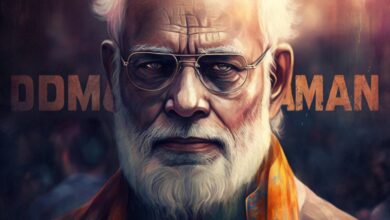The Web as a Platform, AI as the Navigator

Remember the early days of the internet? The thrill of dial-up, the sound of modems connecting, and the vast, unindexed wilderness of the web. We’ve come a long way since then, with browsers evolving from simple navigators to powerful, feature-rich platforms. But what if the next leap in web interaction isn’t just about a faster engine or a slicker UI, but about a fundamentally different way of understanding and experiencing the digital world?
Enter OpenAI’s Atlas – a name that, at first glance, conjures images of charting new territories, mapping the unknown. You might expect a new browser to focus on improving load times, enhancing privacy, or innovating tab management. But what if Atlas isn’t primarily about optimizing the *web* itself, but about creating a more direct, intuitive conduit for its own star player: ChatGPT?
The murmurs suggest that Atlas isn’t just another contender in the browser wars. Instead, it’s being positioned as a surface for OpenAI to distribute ChatGPT and develop new AI features, subtly shifting the focus from improving the core web experience to embedding artificial intelligence directly into our everyday online interactions. It’s a subtle but profound distinction, and one that holds significant implications for how we’ll access information and engage with the internet going forward.
The Web as a Platform, AI as the Navigator
For decades, browsers have served as our windows to the internet. Chrome, Firefox, Safari – they’re all designed to render web pages, manage sessions, and facilitate our interaction with websites as they were built. Their mission is to be the best possible lens through which to view the existing web.
But imagine a world where the browser doesn’t just show you a webpage, but interprets it for you. A world where it doesn’t just list search results, but synthesizes them into a coherent answer. This isn’t just about an AI assistant living *inside* your browser; it’s about the AI *being* the primary interface, with the web merely providing the underlying data source.
This is where Atlas potentially diverges. Instead of merely being a tool to browse the internet, it appears to be a tool to browse the internet *through ChatGPT*. It’s not about making a faster or more private Chrome; it’s about making a browser that fundamentally shifts the interaction model from direct site-to-user to site-to-AI-to-user.
From Information Retrieval to Intelligent Synthesis
Think about your current browsing habits. You open tabs, you search, you scroll, you click, you cross-reference. It’s an active, often fragmented, process of information retrieval. ChatGPT, on the other hand, offers intelligent synthesis. You ask a question, and it provides an answer, often drawing on vast amounts of data without you needing to navigate disparate sources.
If Atlas deeply integrates ChatGPT, it could transform this process. Imagine asking your browser, “Summarize the key arguments in this lengthy research paper,” or “Compare the latest features of these three smartphones based on reviews across the web.” Instead of you doing the legwork, ChatGPT could do it instantly, presenting you with distilled insights rather than raw links.
This isn’t just a convenience; it’s a strategic move for OpenAI. By becoming the intermediary, they gain invaluable insights into user needs, data on how people interact with synthesized information, and a direct channel to continually refine and distribute their core AI models. The web becomes a data source, and ChatGPT becomes the primary interpreter.
OpenAI’s Strategic Play: Owning the User Interface
Why would an AI company venture into the crowded browser market? The answer, I believe, lies in control and distribution. In the world of tech, owning the user interface is paramount. Operating systems, search engines, social media platforms – they all vie for the role of your primary digital gateway.
OpenAI, with ChatGPT, has already proven it can capture user attention on a massive scale. But relying on web interfaces (like chat.openai.com) or third-party integrations (like browser extensions or API calls) means they don’t fully control the user experience. There are always friction points, compatibility issues, and the risk of being sidelined by platform owners.
Atlas provides a direct, unmediated channel. It allows OpenAI to design an experience from the ground up that prioritizes conversational AI. This isn’t just about making ChatGPT easily accessible; it’s about making it the *default mode* of interaction with the web. It’s about ensuring that as the web evolves, ChatGPT remains at the very heart of how users discover, consume, and create information online.
Building the Next-Gen AI Features
Beyond distribution, a dedicated browser allows OpenAI to experiment with and deploy new AI features that are deeply embedded into the web experience, rather than bolted on. Think about contextual AI suggestions while you’re writing an email on a web app, or real-time content generation based on the article you’re reading, or even AI-driven curation of web content tailored to your specific interests and current tasks.
These aren’t just features; they’re entirely new paradigms of interaction. A traditional browser, designed for a pre-AI web, might struggle to integrate these seamlessly. An “AI-first” browser like Atlas, however, can be engineered from the ground up to support such functionalities, making the AI feel less like an add-on and more like an intrinsic part of the browsing experience.
This is a long game. OpenAI isn’t just thinking about the current iteration of ChatGPT; they’re envisioning a future where AI is omnipresent in our digital lives. Atlas, then, isn’t just a browser; it’s a dedicated laboratory and distribution channel for this future, allowing them to iterate and innovate rapidly on how we interact with information at the most fundamental level.
The Future of Web Interaction: Conversational and Curated
The emergence of Atlas points to a fascinating future for how we’ll interact with the internet. It suggests a move away from the raw, unfiltered “firehose” of information that the traditional web often presents, towards a more curated, conversational, and personalized experience mediated by AI.
For users, this could mean greater efficiency, less information overload, and a more intuitive way to get answers and complete tasks. For OpenAI, it means solidifying ChatGPT’s position not just as a powerful language model, but as a foundational layer for digital interaction itself. It’s a bold move, and one that challenges our existing notions of what a “browser” truly is.
Ultimately, Atlas isn’t just about opening web pages; it’s about opening a new chapter in how we connect with the vast ocean of human knowledge. It’s about AI becoming the primary lens through which we view and interact with the digital world, making the internet less about searching for information and more about conversing with it. As this vision unfolds, it will be exciting to see how our digital lives transform, one intelligent conversation at a time.





